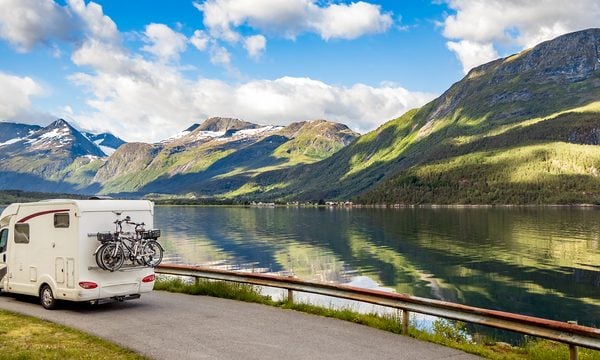How to Buy an RV
Do your research before buying an RV. Consider your travel style and whether to buy new or used — and have the RV inspected.
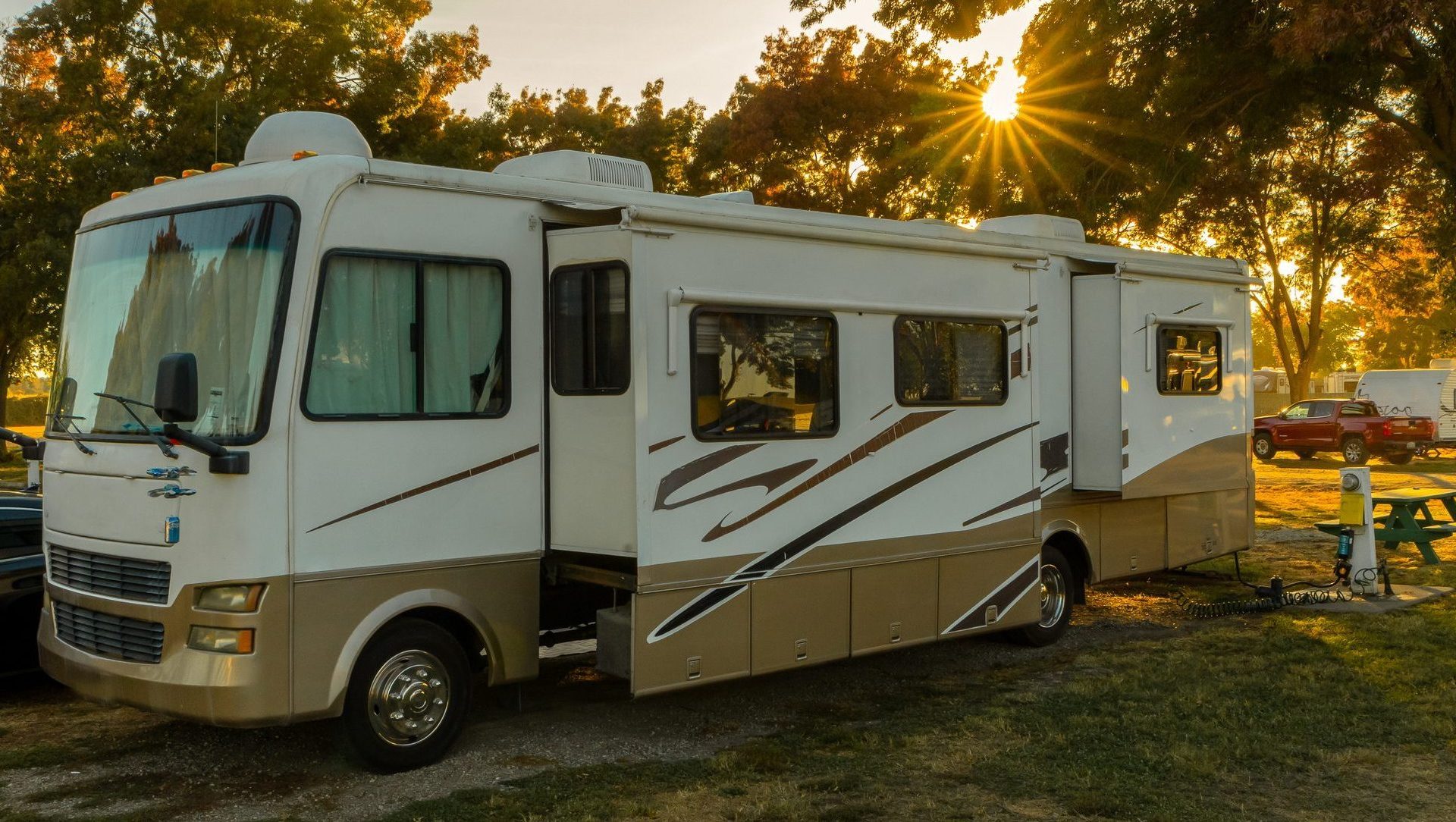
Many or all of the products on this page are from partners who compensate us when you click to or take an action on their website, but this does not influence our evaluations or ratings. Our opinions are our own.
RVing, or traveling in a recreational vehicle, is an experience unlike any other. There's nothing quite like taking your own bed, bathroom, fridge and other comforts of home with you, whether you're camping in the woods or taking a road trip.
However, buying an RV can be a daunting experience, especially if you haven't done it before. Trust me, I went through the process of buying an RV for the first time in 2020. If you're thinking about buying an RV, here are some considerations and tips.
What to do before buying an RV
Choose the right RV type for you
The first decision in buying an RV is figuring out the right type of camper for your travel style. And the first major decision point is whether you want to be able to drive your RV or if you'd rather tow your camper. Here's a high-level overview of the different types of RVs:
Drivable motorhome RV types:
- Class A — large bus-like campers.
- Class B — smaller van-like campers.
- Class C — "classic" RV style, typically with an overcab bed.
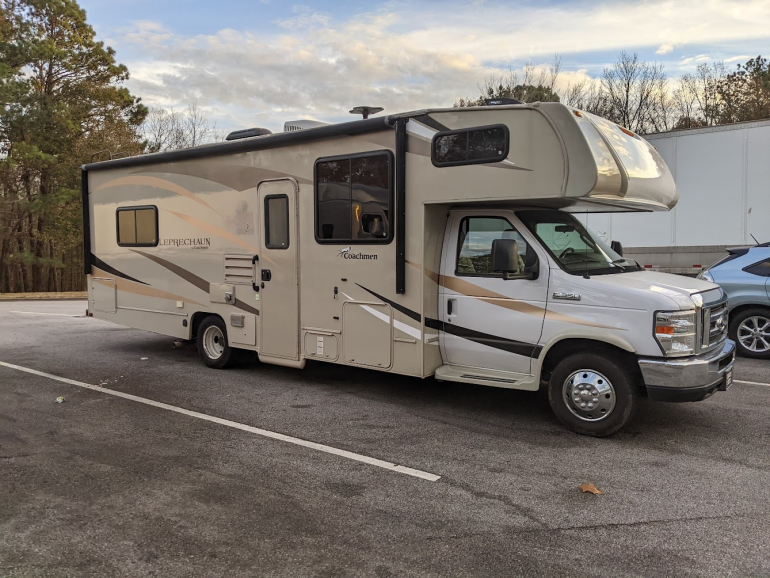
Towed RV types:
- Pop-up trailer — a small hitch-towed trailer that has sections that can be expanded out.
- Travel trailer — medium-sized hitch-towed campers.
- Fifth-wheel trailer — large to massive towed campers that are towed via the bed of a pickup truck.
- Toy hauler trailer — a travel trailer that includes a garage for bringing motorcycles, bikes or other small vehicles.
- Truck camper — a smaller camper that rides on top of a truck bed.
Each of these RV types has its advantages and disadvantages. It may seem simpler to get a drivable motorhome, but that means breaking camp each time you want to drive somewhere (e.g. to the grocery store or to explore a nearby attraction). Towable RVs can be left behind at camp when you want to drive somewhere, but they require much more effort to set up camp. If you plan to move sites often, you'll spend a lot of time setting up and breaking down.
If you choose a towed RV type, make sure to check the towing capacity of your vehicle to see how much you can tow. You don't want to go through the process of buying an RV just to figure out later that you now need to buy a more powerful truck to tow it.
» Learn more: RV vs. camper: Which is right for you?
Consider your options for buying an RV
Once you figure out which type of RV is best for you, you'll need to figure out the best way to buy it. Should you buy new or save on a used RV? Should you buy from a dealership or a private seller? Is it worth buying an RV from a rental company for the savings?
The answers depend on personal preference — and budget. Used RVs can be much cheaper than new RVs but could have hidden issues.
My wife and I bought a former rental RV from El Monte RV for a fraction of the cost of a new RV. Our RV inspector checked it thoroughly and didn't find any issues. Sure, the RV was a few years old and had 64,000 miles on it, but it had been well-maintained. We've only had minor issues the past few years — as with any RV.
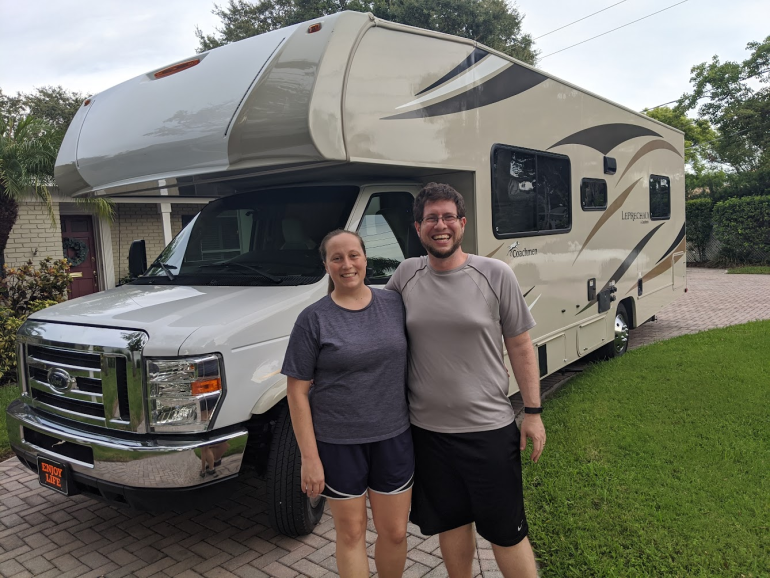
Try renting before buying an RV
The best way of figuring out if an RV is going to be right for you is by trying it out yourself. Since each individual RV can be quirky, it's best if you can rent the exact unit that you're considering buying. If you're considering buying an RV from an independent seller or from an RV rental company, ask if you can rent the RV for at least a few nights to try it out.
If you're buying a new RV, you probably won't be able to rent the exact unit you're considering. However, try to rent a similar unit to make sure the size and features are a good fit for your travel style.
For example, my wife and I rented two models before buying our RV. The first rental required extending a slide to sleep in the master bed (see photo below). We learned that was a no-go for us, as we wanted the ability to book campsites that didn't require the extra space to extend a slide.
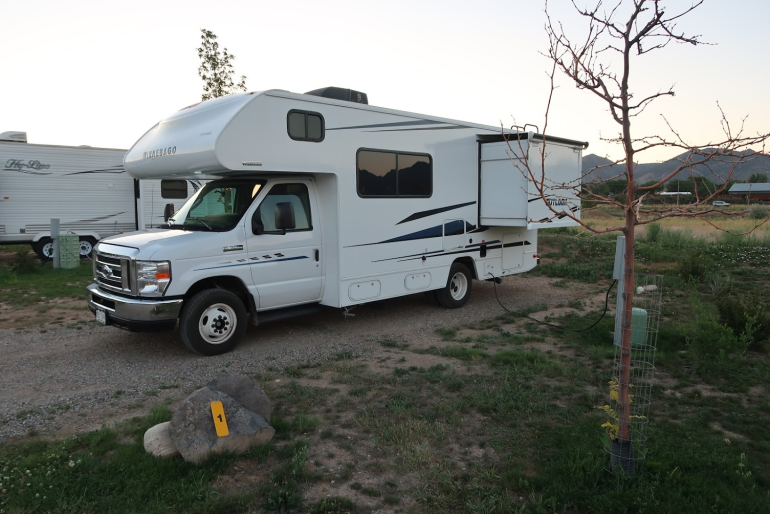
After renting a towable RV, you might figure out you despise backing the unit into campsites. In that case, a motorhome might be a better choice. Or you might find that a Class C RV is too big and you'd rather have the flexibility of a Class B van. These are all personal decisions that are best figured out by renting an RV and trying it out yourself.
If you're considering buying a former rental RV, consider taking advantage of Cruise America's rent-to-buy program. This unique rental rebate program lets you get up to $3,000 off the purchase of a used Cruise America RV within six months of a rental. That gives you the chance to road-test a model. Plus, you practically get to try it for free — as the rental costs go toward your purchase.
» Learn more: The best RV rental companies and how to choose
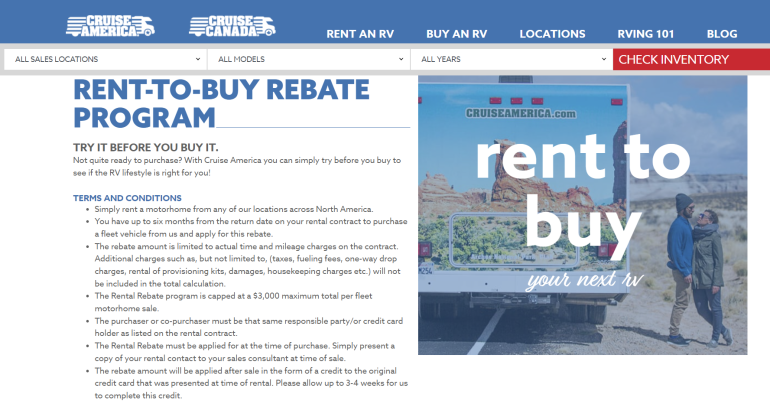
Figure out financing and insurance
RVs aren't cheap, and not all sellers will finance the purchase of an RV. If you aren't paying cash, make sure you have financing lined up before you go through the process to buy an RV.
Also, contact your insurance company to set up insurance before you purchase an RV. You don't want to have an accident shortly after driving your expensive new RV off the lot just to realize your insurance doesn't kick in until a few days later.
Get your RV inspected by a professional
One of the best investments you can make when buying an RV is getting the unit inspected before you buy. RVs are generally assembled by hand and can have quirks or issues that you may not notice until after you've completed your purchase.
A full inspection will check systems and details that you may have never thought to check before buying your unit. When I bought my RV, the full inspection report stretched 94 pages and covered everything from inspecting the propane systems to a detailed inspection of the roof for any signs of leaks.
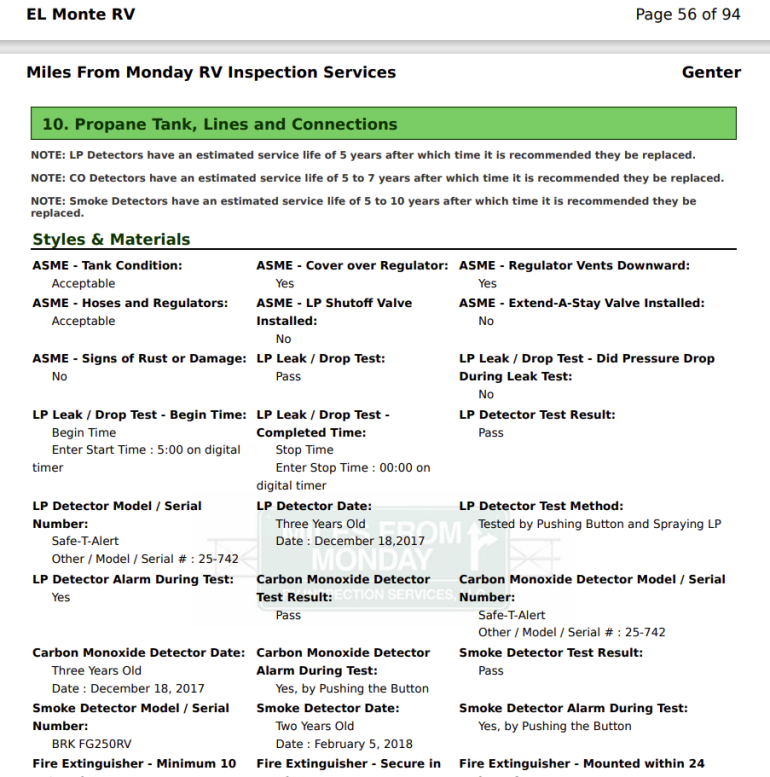
Use the National Recreational Vehicle Inspectors Association lookup to find certified inspectors in your area.
If you're considering buying an RV…
RVing is one of the most freeing travel experiences there is. It's incredible to head out on the road or into the wilderness with many of the comforts of home, giving you the ability to sleep pretty much anywhere.
If you're only going to use an RV for a few weeks a year, renting is likely the most practical option. However, if you'd like to go on an extended road trip, want to camp more often or want to become a full-time RVer, you're going to need your own unit.
An RV is not a cheap purchase, so make sure to do your homework. Figure out what type of RV works best for your travel style, decide on whether a new or used RV is best, test out the model you're considering purchasing, make sure to have financing and insurance lined up, and — most importantly — have the RV inspected before you purchase it.
How to maximize your rewards
You want a travel credit card that prioritizes what’s important to you. Here are some of the best travel credit cards of 2026:
- Flexibility, point transfers and a large bonus: Chase Sapphire Preferred® Card
- No annual fee: Wells Fargo Autograph® Card
- Flat-rate travel rewards: Capital One Venture Rewards Credit Card
- Bonus travel rewards and high-end perks: Chase Sapphire Reserve®
- Luxury perks: American Express Platinum Card®
- Business travelers: Ink Business Preferred® Credit Card
Article sources
NerdWallet writers are subject matter authorities who use primary,
trustworthy sources to inform their work, including peer-reviewed
studies, government websites, academic research and interviews with
industry experts. All content is fact-checked for accuracy, timeliness
and relevance. You can learn more about NerdWallet's high
standards for journalism by reading our
editorial guidelines.
Limited Time Only: Earn $1,000 Toward Travel!
Capital One Venture Rewards Credit Card 
Travel

For a limited time, the
Capital One Venture Rewards Credit Card is offering new cardholders an especially rich bonus: Enjoy $250 to use on Capital One Travel in your first cardholder year, plus earn 75,000 bonus miles once you spend $4,000 on purchases within the first 3 months from account opening - that’s equal to $1,000 in travel!
More like this
Related articles


